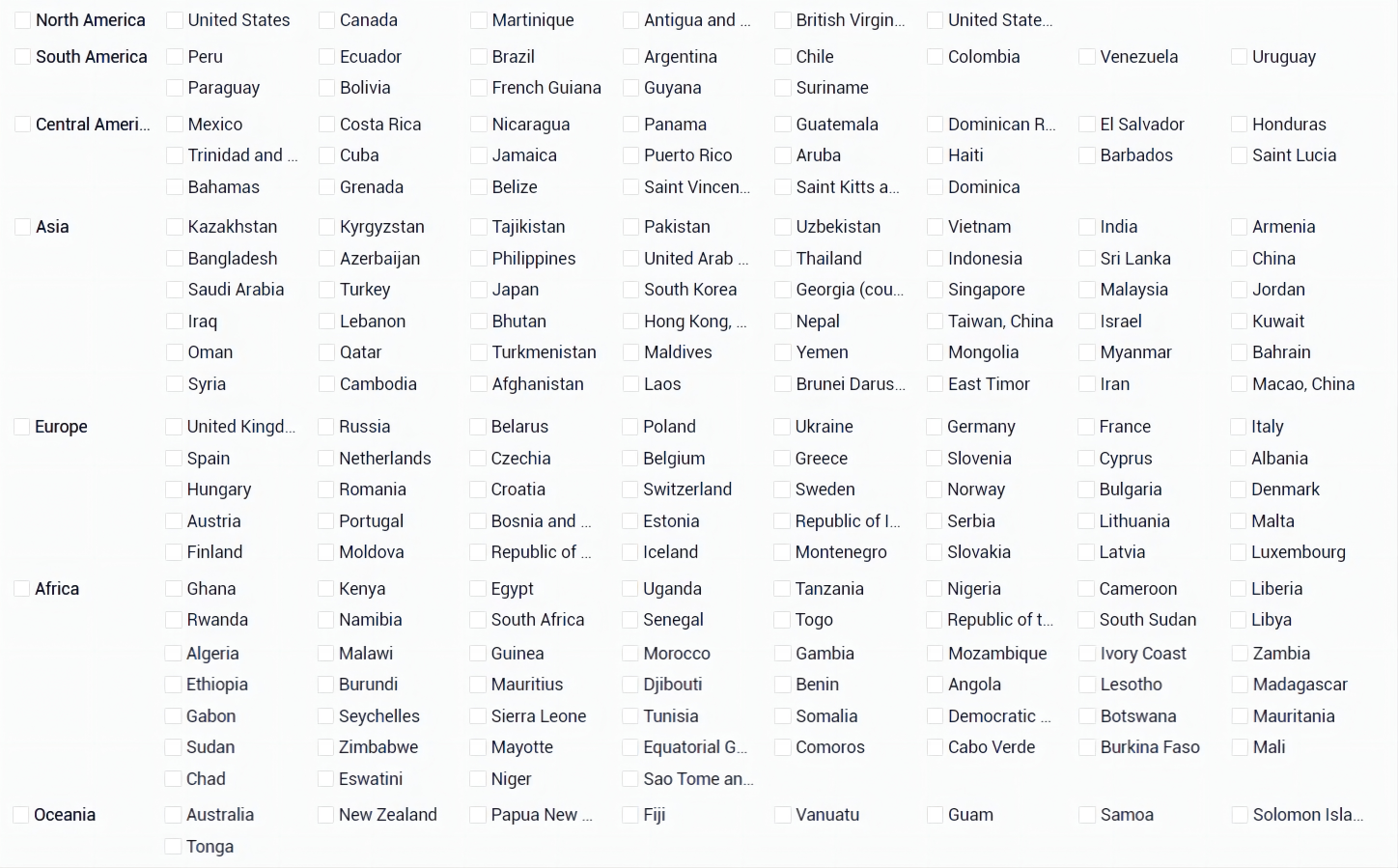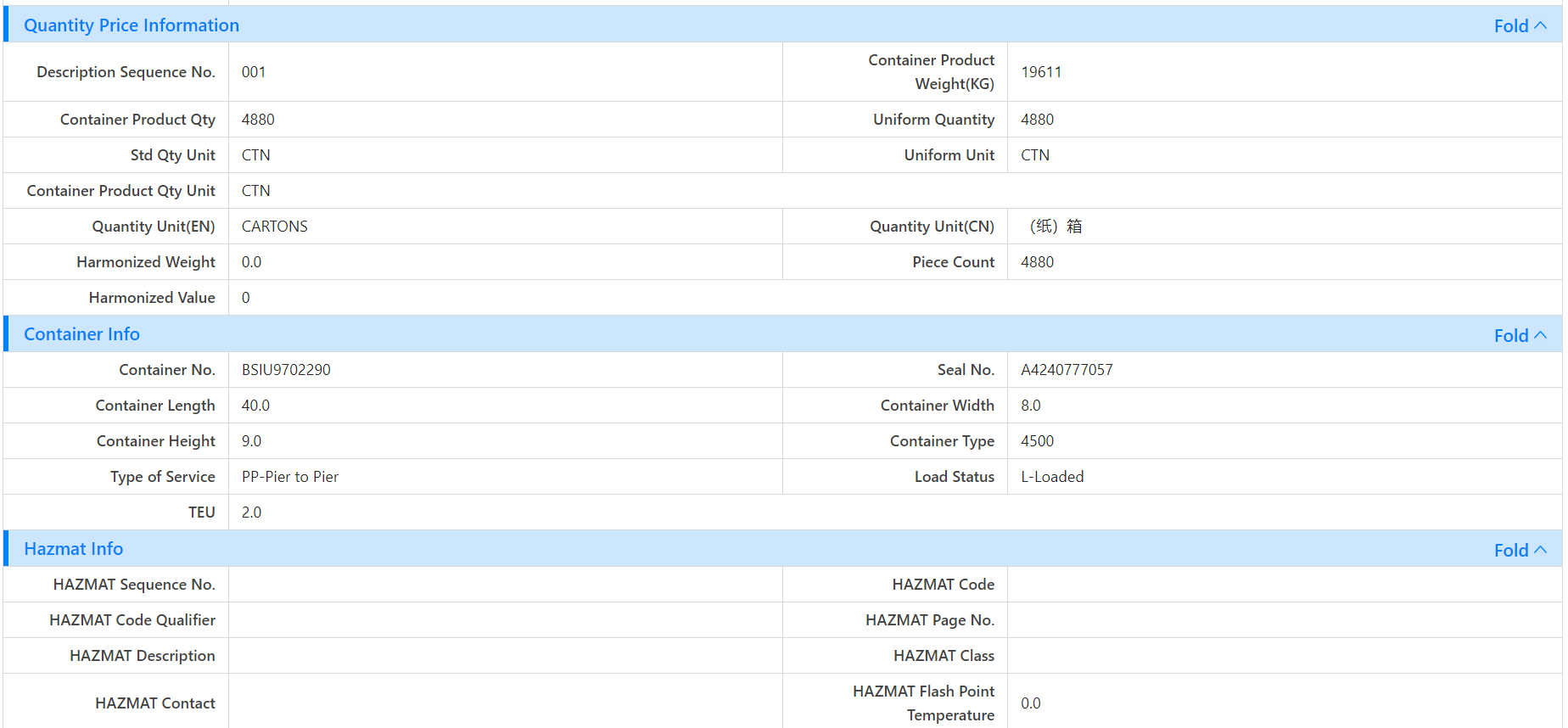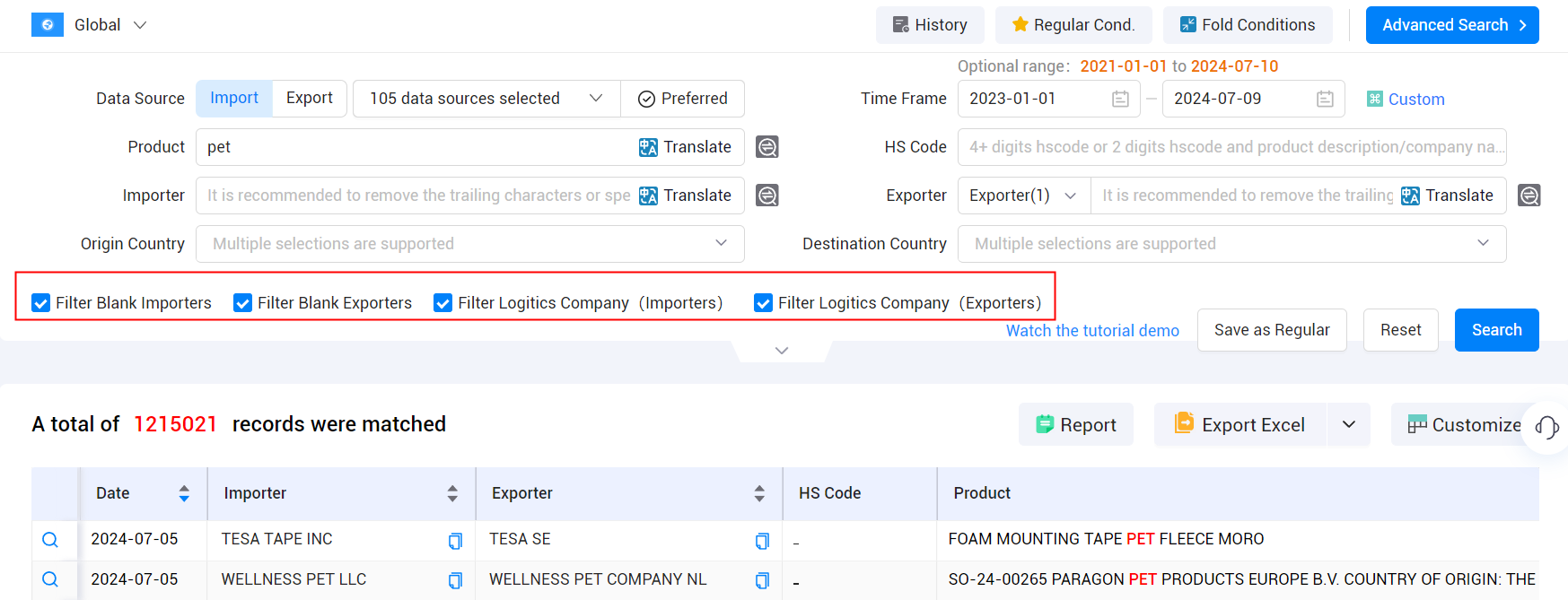 Trade Data Provider
Trade Data Provider
 10-07-2024
10-07-2024
Quality customs data is crucial for client development. However, the "customs data" available online can vary significantly in quality and price, and one misstep can lead you into a carefully designed trap. Today, Tendata shares six tips to help you identify trustworthy "customs data" so you can find truly valuable resources.
1. Time Span Coverage of Customs Data
Pay attention to the time span of the customs data. The latest customs data reflects customer demand more accurately, while outdated information may fail to capture current market dynamics. Additionally, the reliability of data from different countries or regions varies. If the customs data only covers a few countries, the information might be too narrow to provide a comprehensive understanding of the global market. Tendata customs data covers customs information from 218 countries and regions, with trade data, business data, and internet data sources, enabling you to gain a thorough understanding of the global import and export market.
>> Learn about the latest Tendata customs data<<

2. Completeness of Customer Contact Information
It is essential to emphasize the completeness of customer contact information in customs data. While company names can be found on official websites, direct communication is not possible. Direct contact details such as phone numbers and emails are more likely to generate real business opportunities. A high bounce rate should raise concerns about the data's authenticity. Tendata customs data specialists verify the validity of customer contact information in real-time and provide alerts on potential bounce rates, allowing customers to choose how to develop contacts and through which means.
>> View more customer contact information<<

3. Detailed Product and Transaction Information
Check whether the customs data includes detailed product descriptions, quantities, prices, logistics, and other relevant information. Merely listing company names is less useful than directly consulting a directory. Without detailed transaction information, it is difficult to assess the commercial value. In contrast, data that includes complete transaction details is often more practical, demonstrating the provider's professionalism and dedication. Tendata customs data offers detailed trade manifests, including product details, quantities, prices, logistics information, business information, importer and exporter details, and 92 other fields, providing a comprehensive view of foreign trade customs data for your reference. Here are some snapshots of trade manifests:
>> Contact Tendata for the full version<<

4. Distinguishing Between Import/Export Companies and Logistics Providers
Check if the customs data distinguishes between import/export companies and logistics providers, as this directly affects your ability to find end customers. Some customs data come from freight forwarders, reducing their authenticity. Ensure the ability to filter out logistics companies. Also, pay attention to different weight unit notations in customs data from various countries to avoid confusion and misunderstandings. Tendata customs data supports filtering for each search, allowing you to distinguish between logistics companies and trading companies without inflating numbers with fake logistics companies.
>> Learn more about Tendata customs data<<

5. Price and Service Quality
The lowest price is not always the best option for customs data. Communicate with providers to understand their discount policies, long-term service attitude, and data update frequency. Consistent quality service ensures the data's practicality and reliability.
6. Checking Existing Customer Data Completeness
The final tip is to casually check some clients you already have business with and observe the completeness and accuracy of the customs data. This is the most direct method to test data quality.
Conclusion
Client development is the lifeline of foreign trade work, so do not be easily swayed by enticing words. By following the above six tips, you can find the best quality customs data for your needs. The journey in foreign trade is long; let's improve together!
Frequently Asked Questions
Q1: Can free customs data be used?
A1: Free customs data updates might be delayed but are not useless. Actively searching for information and opportunities can still be beneficial.
Q2: How to evaluate the quality of customs data?
A2: Evaluate the quality of customs data based on the completeness of contact information, level of customer details, service attitude, and verified customer data.
Q3: What should be considered when choosing paid customs data?
A3: When choosing paid customs data, focus on the timeliness of the data, country coverage, service quality, and data traffic limits. Weigh all factors and make a rational choice.
Q4: How to use customs data efficiently?
A4: Filter customers in layers, focus on key markets, and develop a clear development plan. Sharing and learning from experiences can also enhance the efficiency of using customs data.
Q5: What details should be considered when selecting a customs data platform?
A5: Consider the customs data platform's update mechanism, regular analysis reports, transaction detail levels, after-sales service, and return policy to fully understand the platform's strengths and weaknesses.
Category
Leave Message for Demo Request or Questions


 T-info
T-info T-discovery
T-discovery

 My
Tendata
My
Tendata Market Analysis
Market Analysis Customer
Development
Customer
Development Competitor
Monitoring
Competitor
Monitoring Customer Relationship
Customer Relationship





































































































































